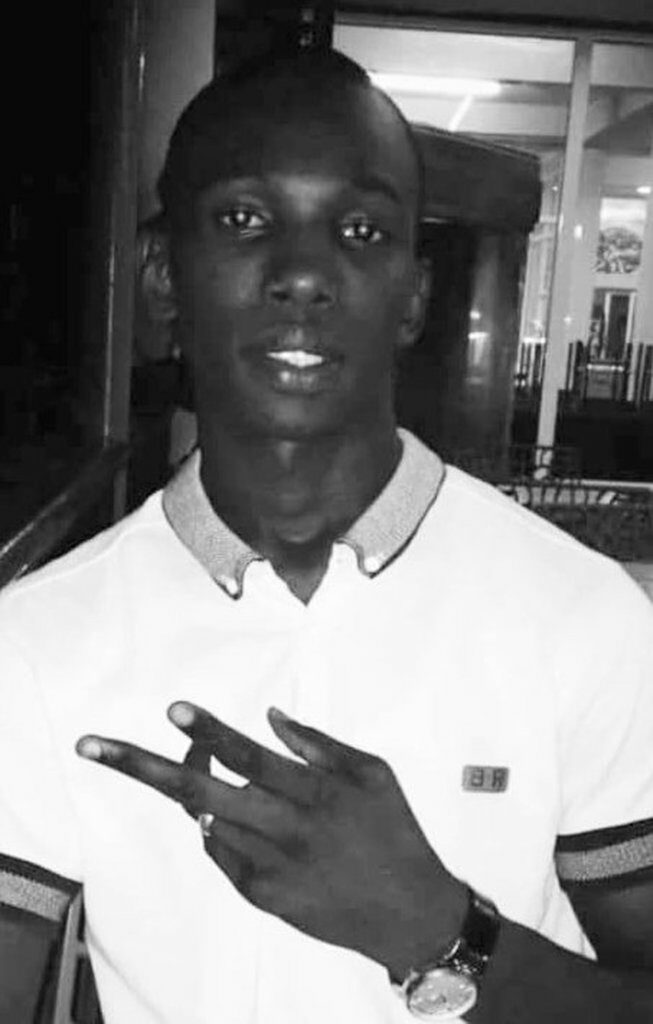
Ebrima Kebbeh was not a typical Seattle teenager.
Before most children leave their parents’ homes, Kebbeh was disowned because of his sexual orientation and fled his native Gambia and a regime infamous for brutally oppressing its LGBTQ citizens, according to his family.
He made it to the United States in 2016 with the hope to study, get a job and send money back to the sister who raised him. He lived briefly with a cousin before getting into a transitional living shelter with YouthCare, a Seattle-area nonprofit serving homeless youth.
At YouthCare, Kebbeh sought out things that reminded him of home. He used the shelter’s kitchen to make peanut-butter soup, and brought batches to his cousin’s apartment. During the Muslim holy month of Ramadan and its dawn-to-sunset fast, Kebbeh would get up before first light, eat alone, nap for a couple of hours, then go to school for the day.
“Ebrima was going to make it,” said a former staffer at the shelter. “Ebrima worked extra hard, he was extra kind. Ebrima would have been fine, and I think that’s what makes this all the more heartbreaking.”
Months after he arrived at the shelter, Kebbeh, 17, was dead.
A lawsuit filed in King County Superior Court claims both YouthCare and Sail Sand Point — a sailing camp Kebbeh attended — are at fault for the teenager’s drowning in August 2017.
According to the suit, a YouthCare caseworker helped Kebbeh, whose English proficiency was limited,sign up for Sail Sand Point’s summer camp program, and as part of the online participation agreement, checked off a box saying Kebbeh was a capable swimmer.
Sail Sand Point instructors told police that for the camp’s swim test, kids were told to jump off the dock, one at a time, into water roughly 12 feet deep. Kebbeh jumped and sank, one instructor said, and was underwater for six minutes.
The first staffer who dived in to find Kebbeh didn’t have goggles. After he ran to get them, it took multiple dives from camp instructors and a first responder to find Kebbeh on the murky lake bottom. By the time he was pulled out, his lungs were full of debris and water.
Two weeks later, he was taken off life support.
The swimming test
Channa Copeland, Kebbeh’s court-appointed guardian, said she was stunned that, allegedly, no one asked if Kebbeh could swim.
“Him being able to understand the word ‘treading’ — he never would have understood that word,” Copeland said.
When asked by police if he had noticed anything different about Kebbeh, one camp staffer noted that he was older than the other swimmers and seemed uncomfortable.
Kebbeh’s 20-year-old sailing instructor told police he hadn’t asked Kebbeh directly if he could swim. “I figured that we had been talking about the swim check for about half an hour,” the instructor said, adding that he assumed Kebbeh would have spoken up if he couldn’t.
Nate Roberts, lead attorney for the lawsuit against YouthCare and Sail Sand Point, said he couldn’t think of a swim check “that would be more likely to cause a drowning than the way that they did it.”
Seth Muir, Sail Sand Point’s executive director, said the swim check “was conducted in accordance with United States Sailing Association procedures.”
“Sail Sand Point was very distressed by this tragedy, but disagrees completely with the characterization of the swim check made by plaintiff’s attorneys,” Muir said by email.
YouthCare declined to comment on the allegations.
Patient, kind, and an “amazing” person
In The Gambia, Ebrima Kebbeh’s older brother found out about his death when he heard another brother screaming from the next room. Then he, too, began to scream.
The elder Kebbeh said that his brother was gay, a crime punishable by life imprisonment in the Gambia, and as a result, their father kicked him out of the family home. After that, Ebrima Kebbeh made his way to the U.S., where he planned to earn enough money to build his other family members a compound.
Kebbeh loved Seattle, according to a cousin he lived with briefly. Kebbeh was patient and kind, and pushed his cousin to get out of the house and do things, like bowling near the Southcenter mall or watching New Year’s Eve fireworks from the base of the Space Needle.
Kebbeh’s kindness extended to YouthCare caseworkers, too. When a caseworker brought Kebbeh dates, the traditional food to break the Ramadan fast, the teen thanked her profusely, a former staffer remembered. “Every time someone did something for him, there was genuine surprise that someone would go out of his way to make his life better,” she said.
Kebbeh smiled with his whole face, the staffer remembered. His English was always better than he thought it was, she said, and when he came across an idiom he’d never heard, he’d Google it or ask what it meant.
“I was amazed by him every single day,” said Kebbeh’s cousin, who stayed by his hospital bedside while he was in a coma. “Not a minute [goes] by I don’t think about him.”
He still has questions about Kebbeh’s death.
“I’d love to know exactly what happened,” he said. “The story’s not lining up to me, not making a lot of sense.”
Reporting by Sydney Brownstone
(The Seattle Times)










Recent Comments